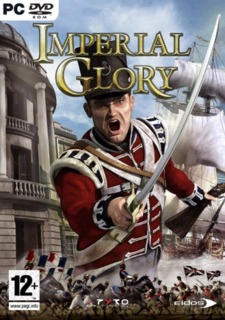A direct comparison with the Total War series may be somewhat unfair.
Once you start playing the game in Campaign mode for example, it soon becomes clear that there are many subtle philosophical differences as far as the overall game play is concerned.
To begin with, the genre in which the game is staged, i.e., the European Imperial Age of the late 1700's to early 1800's makes a direct comparison almost impossible, since the technologies, buildings, advances, etc. that apply will clearly be different than those involved in any of the Total War series games.
This means that the developers had to focus on some different aspects of the application of possible advances such as the political research branch which really becomes quite complex as the game progresses - typical of this era in European history, with alliences, coalitions and other political things happening on almost a turn-by-turn basis.
The diplomatic AI and options available are therefore a lot more involved and complex than those found in Rome Total War or Medieval Total War although there aren't any assasins or spies running all over the place. Instead, the latter is really replaced more on a "global" scale through the necessary research and buildings in capital provinces.
The ability to assimilate populations through Newspaper branches or other propaganda related infrastructure is really not covered in Rome Total War for example, where the only way to really take over a new province is through military sieges or direct actions or via a rather rudimentary "Proctectorate" system. In this sense, this game is therefore far more developed in this area of empire building and quite different from the above.
The concept of sympathies between empires is also completely different and is really key to the whole empire building aspect of the game, since the manipulation of sympathies towards one's own empire can actually result in greater gains over a longer period than sheer military might.
The concept of "Quests" as implemented in the game can also become quite a powerful game winning tool if utilized correctly at the right times and cannot really be compared with "wonders" in Rome Total war for example.
Having played the game for a few days now, it is clear to me that in the long run an empire can almost be built entirely without any direct military action if the diplomacy aspects of the game are fully utilized and managed, although some military conflict will be inevitable sometime towards the end if one wants to gain the final number of "Glory Points" to win the game.
Given this perspective therefore, it is clear that the developers focussed a lot more along these lines than the sheer wonder of the massive land battles in Rome Total War for example.
This doesn't mean that the land battles - not resolved automatically by the AI by user choice - in this game are bad. They are just not as good as those in Rome Total War. This applies to both the look and feel, command abilities and "intelligence" of the underlying AI. The graphics are not in the same class and the options available to command troops directly are rather limited not to mention an AI that seems to lose it's marbles every so often. A good example is in the "easy" mode where enemy columns will often just sit and wait on a bridge instead of attacking if your opposing armies are fairly close in numbers and overall power. Another obvious omission is the lack of any troop morale values that almost negate the respective strenghts and weaknesses of various unit types, since everyone will simply do a banzai on everyone else untill they win or everyone is dead.
Nonetheless, it's still quite enjoyable and not bad at all.
Where the developers obviously tried to improve on the Total War style is in the area of sea battles. In this area the game is a lot more developed than any of that found in the Total War series and the graphics are actually quite cool.
The only problem, which has been mentioned by a few other reviewers, is that the whole command and management situation quickly becomes chaotic with ships doing things all over the place and the management of them simply becomes to complex to really enjoy in anything that resembles a larger scale sea battle. It's a pitty, since with a little more homework on the user interface front I believe the developers could have made this aspect a lot easier to manage.
Once again, it's still quite enjoyable though.
The bottom line is therefore that this game simply won't work for gamers who have a taste for the large-scale, beatiful and artifically "intelligent" land battles found in Rome Total War for example.
Instead, this game is more for those people who really enjoy some empire building with a lot of forward planning and "intrigue" involved in diplomacy and the correct research as well as infrastructure developments at the right time.
While, in this sense the game can become somewhat pedantic in the pace department at times, it is really quite a great game with lots of little nooks and crannies to be explored and utilized at the right time. The aspect of battling on land and sea should almost be seen as a variation of this theme from time to time when necessary just to get out of empire building more for a while.
All in all I recon the game is worth buying and therefore playing if you fall into the latter category, and if the developer intends doing a Imperial Glory II there may just be a game in the making for the first time in a long while that can actually challenge the Total War series - not that we are comparing!

